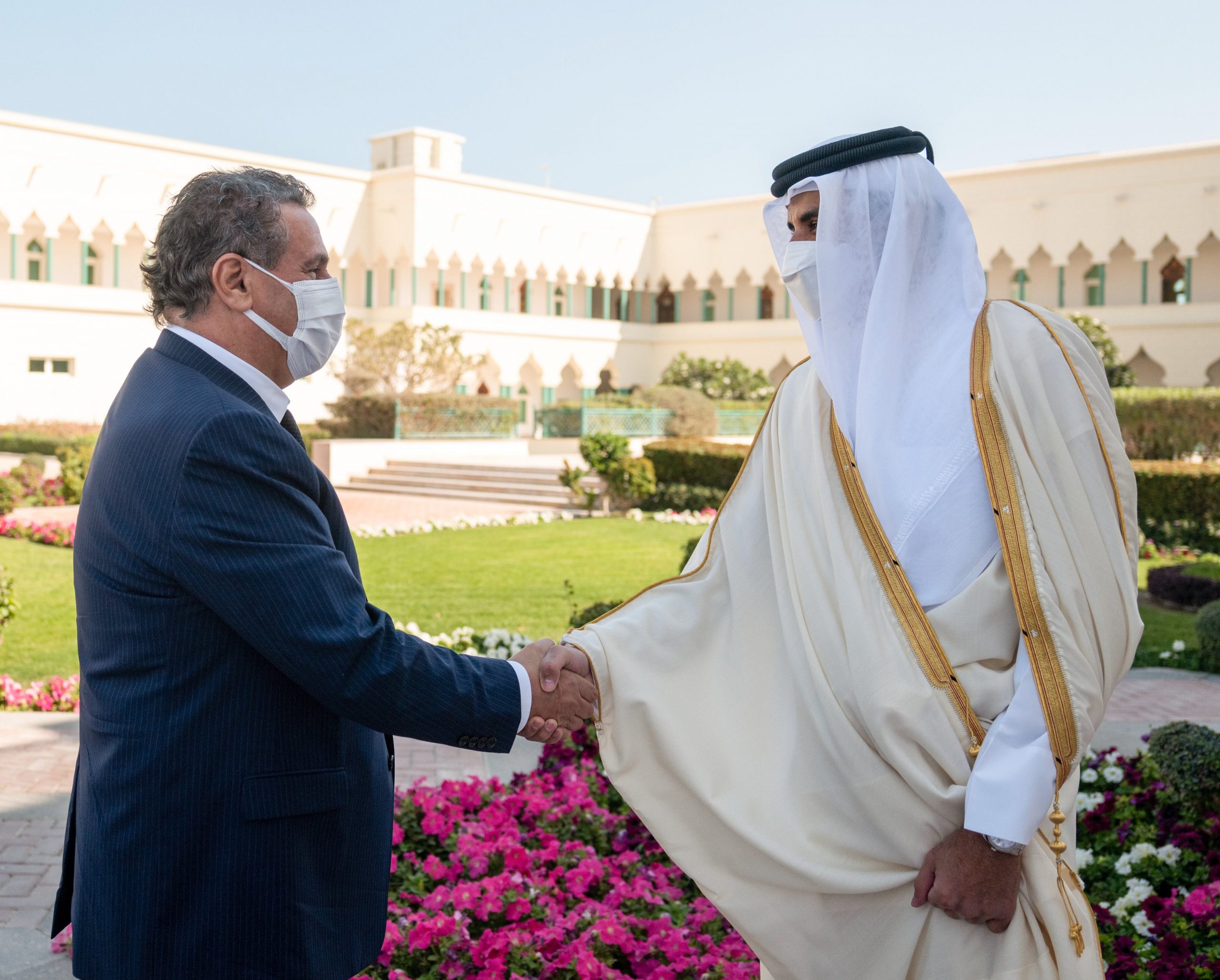Doha and Rabat established diplomatic ties in 1972.
Morocco’s Prime Minister, Aziz Akhannouch, is in Qatar to boost the two countries’ bilateral ties during the 8th session of the Qatari-Moroccan Joint Supreme Committee, the Gulf state’s news agency (QNA) reported late on Sunday.
The Moroccan diplomat met with Qatar’s Amir Sheikh Tamim bin Hamad Al Thani on Monday, in what is believed to be his first visit since being appointed as prime minister in September last year.
Several meetings took place on Sunday ahead of Akhannouch’s arrival, with senior officials from both the Qatari and Moroccan governments in attendance, in preparation for the Qatari-Moroccan Joint Supreme Committee session on Monday.
One such meeting involved Qatar’s Minister of Commerce and Industry, Sheikh Mohammed bin Hamad Al-Thani, and Morocco’s Minister of Industry and Trade, Ryad Mezzour.
According to QNA, Al-Thani and Mezzour discussed commercial relations between the two countries and opportunities to develop them alongside means for encouraging foreign investment.
In another meeting, Qatar Chamber along with the Morocco Business Council further explored economic ties between the two entities.
Qatari and Moroccan officials noted that bilateral trade exchange witnessed a significant increase in 2021, amounting to 754 million QAR in comparison to 330 million QAR in 2017.
A total of 80 companies currently operate in Qatar in various fields including hospitality, fashion, and business solutions.
Qatar-Morocco ties
Doha and Rabat established diplomatic ties in 1972, which have since witnessed remarkable growth.
In 2011, the two countries signed a memorandum of understanding (MoU) on the mutual exemption of Qatari and Moroccan nationals from the entry visa requirement.
In 2013, Doha and Rabat signed a MoU over “Qatar’s contribution to the financing of development projects” in Morocco.
The strength of Qatar-Morocco relations was further exhibited during the 2017 diplomatic crisis in the Gulf region, when Rabat offered to play a mediating position whilst maintaining a neutral stance.
During the regional rift, Saudi Arabia, the UAE, Bahrain and Egypt imposed an illegal air, land and sea blockade on Qatar over baseless accusations that Doha was supporting terrorism—claims it vehemently denied.
At the time of the embargo, Qatar imported 80% of its goods from the blockading states, which prompting authorities in Doha to swiftly move to provide alternative products to its people.
Morocco also offered to send food supplies to Qatar at the time “in conformity with Islamic precepts that call for solidarity and mutual aid between Muslim people”.
Last year saw another diplomatic rift in the MENA region, when Algeria severed diplomatic ties with Morocco over “hostile actions” against it.
At the time, “Qatar expressed its deep regret” and stressed the need to maintain channels of dialogue to resolve the diplomatic dispute.
Follow Doha News on Twitter, Instagram, Facebook and Youtube







